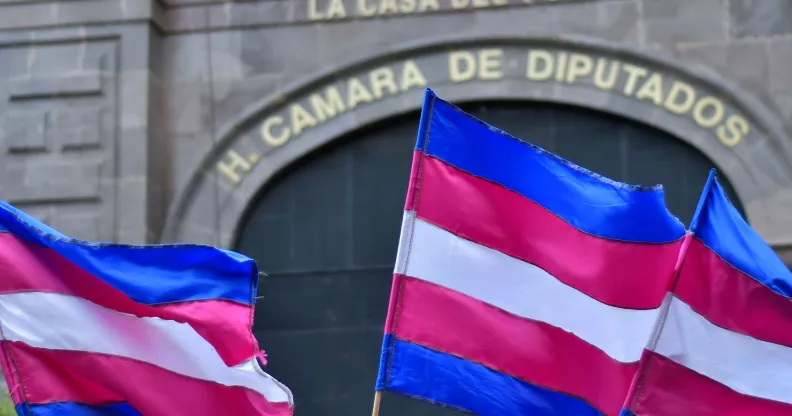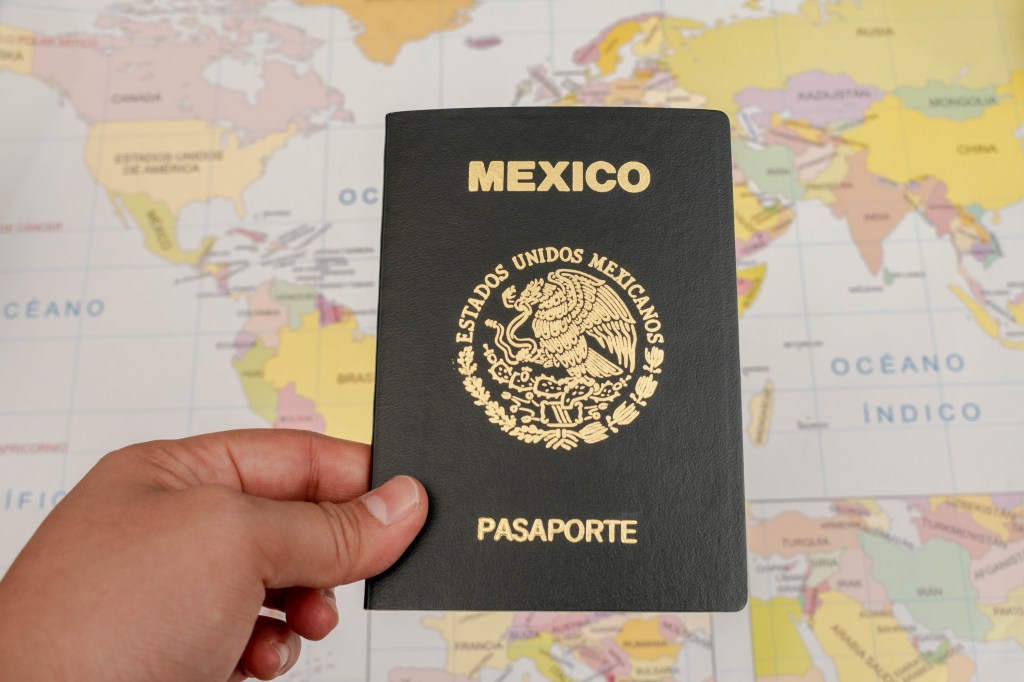Mexico unveils new non-binary passport: ‘Diversity enriches and flourishes’

Mexican citizens will be able to get passports approved with an ‘X’ gender marker. (Getty)
Mexican citizens will be able to get passports approved with an 'X' gender marker. (Getty)
In a win for diversity, Mexico has finally begun allowing its citizens to legally identify as their true selves after issuing the country’s first non-binary passport.
Foreign minister Marcelo Ebrared confirmed on Wednesday (17 May) that the Mexican government had issued the first passport with a non-binary gender marker, calling it a “great leap” for freedom of expression.
On International Day Against Homophobia, Biphobia, and Transphobia (IDAHOBIT) no less, Mexican activist Ociel Baena received their passport during a ceremony held by government officials, including transgender federal lawmaker Salma Luévano.
“We endorse our support for sexual diversity,” the foreign minister wrote in a statement. “All rights must be guaranteed for all identities. No more hate speech – diversity enriches and flourishes.”
Under the new policy, non-binary and gender non-conforming Mexican citizens can choose to replace a gender category with an ‘X’ rather than simply choosing male or female.
The foreign minister also clarified that applicants can now “omit the need to specify gender” when applying for new passports.
According to the community-driven LGBTQ+ rights site Equaldex, 16 countries, including Mexico, currently recognise the ‘X’ marker on official documentation, such as passports, licenses and birth certificates.

Meanwhile, four countries allow only certain types of recognition either for intersex people or given certain requirements. The last country to change its policy on non-binary passports was Spain in December 2022. It allows ‘X’ markers for intersex people only.
Several countries still don’t allow ‘X’ markers to be used on passports, including France, Italy and the UK.
Activists across the UK have heavily criticised the government for its stance on non-binary passports, with the government saying on multiple occasions that it has no intention of updating the policy any time soon.
In 2021, the UK confirmed it had no plans to add the ‘X’ marker to legally recognised passports despite a petition urging the government to do so, which was signed by more than 136,00 people.
“As set out in the response to the Gender Recognition Act consultation, there are no plans to make changes to the 2004 Act,” the government response to the petition said.
“The 2018 GRA consultation did not bring forward any proposals to extend the GRA to provide legal recognition to a third, or non-binary, gender.
“The government noted that there were complex practical consequences for other areas of the law, service provision and public life if provisions were to be made for non-binary gender recognition in the GRA.”

